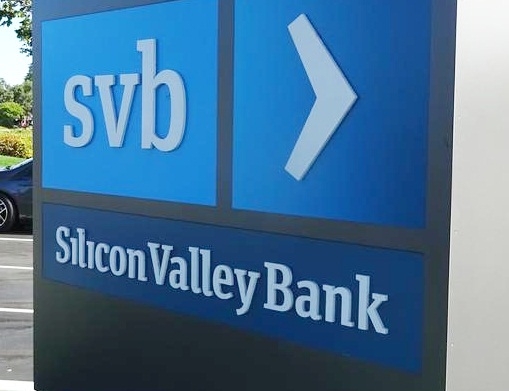The Fed official is among the regulators set to appear before Congress for the first hearing related to the collapse of Silicon Valley Bank….reports Asian Lite News
A top US Federal Reserve official on Wednesday blamed US regulators for Silicon Valley Bank’s rapid collapse earlier this month after it took excessive interest-rate risk.
“I think that anytime you have a bank failure like this, bank management clearly failed, supervisors failed and our regulatory system failed,” the Fed’s vice chair for supervision Michael Barr told the House Financial Services Committee. He said the Silicon Valley Bank (SVB) management, supervisors, and regulatory system ‘failed’ during the collapse.
Barr told the House Financial Services Committee that he first became aware of stress at Silicon Valley Bank on the afternoon of March 9, but that the bank reported to supervisors that morning that deposits were stable.
“(Fed) staff were working with Silicon Valley Bank basically all afternoon and evening and through the morning the next day to pledge as much collateral as humanly possible to the discount (window) on Friday,” said Barr.
The Fed official is among the regulators set to appear before Congress for the first hearing related to the collapse of Silicon Valley Bank.
“The picture that has emerged thus far shows SVB had inadequate risk management and internal controls that struggled to keep pace with the growth of the bank,” said Barr.
Barr is leading a review by the Fed of possible supervisory and regulatory missteps that failed to prevent the bank’s failure. The results will be released by May 1.
The failures of SVB, and days later, Signature Bank, set off a broader loss of investor confidence in the banking sector that pummelled stocks and stoked fears of a full-blown financial crisis.
Lawmakers pressed regulators on whether the Fed should have been more aggressive in its oversight in the second congressional hearing into the collapse of the two lenders.
“We are evaluating whether application of more stringent standards would have prompted the bank to better manage the risks that led to its failure,” said Barr.

Meanwhile, the Federal Deposit Insurance Corporation (FDIC) has entered into a purchase and assumption agreement for all deposits and loans of recently failed US-based Silicon Valley Bridge Bank by First-Citizens Bank and Trust Company, Raleigh, North Carolina.
The FDIC created Silicon Valley Bridge Bank, National Association, following the closure of Silicon Valley Bank by the California Department of Financial Protection and Innovation.
All of the deposits — both insured and uninsured — and substantially all assets and all Qualified Financial Contracts of Silicon Valley Bank were transferred to the bridge bank. The purpose of establishing Silicon Valley Bridge Bank, National Association, was to allow time for the FDIC to stabilize the failed banking institution.
The 17 former branches of Silicon Valley Bank will now open as First-Citizens Bank and Trust Company.
“Customers of Silicon Valley Bridge Bank, National Association, should continue to use their current branch until they receive notice from First-Citizens Bank & Trust Company that systems conversions have been completed to allow full-service banking at all of its other branch locations,” FDIC said in a statement Sunday (local time).
Depositors of Silicon Valley Bank will automatically become depositors of First-Citizens Bank and Trust Company. All deposits assumed by First-Citizens Bank & Trust Company will continue to be insured by the FDIC up to the “insurance limit”.
As of March 10, 2023, Silicon Valley Bank had approximately USD 167 billion in total assets and about USD 119 billion in total deposits.
Today’s transaction (March 27) included the purchase of about USD 72 billion of Silicon Valley assets at a discount of USD 16.5 billion.
Approximately USD 90 billion in securities and other assets will remain in the receivership for disposition by the FDIC. (ANI)

